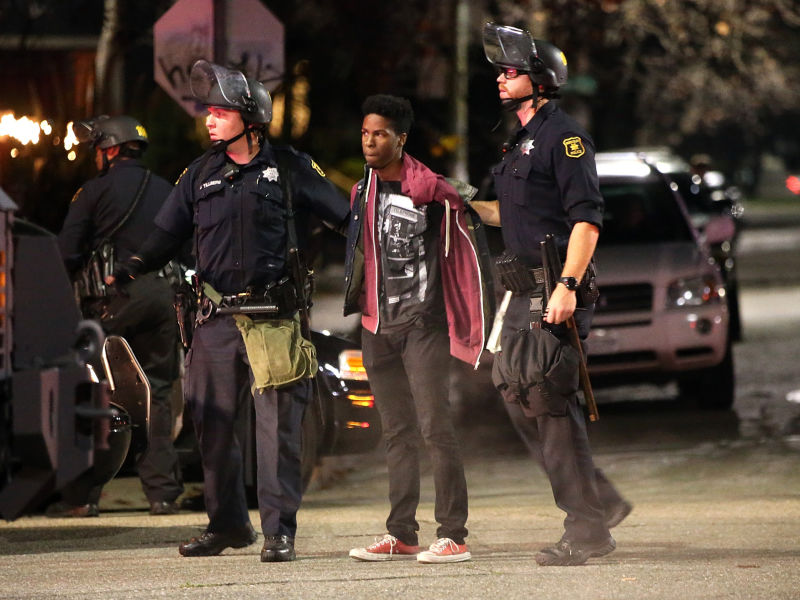"When you have a specific population disproportionately stopped but found less likely to have engaged in criminal activity, it indicates racial profiling," Smith said.
The new numbers cover the same time period and add bicycle and pedestrian stops to vehicle stop data.
"Collection of data can assist and contribute to the national policing discussion, focus our attention internally on implicit bias and increase trust by making policing in Berkeley more transparent to the community," a Police Department statement announcing the data's publication says.
Representatives from the Berkeley Police Department were not available Friday to answer questions about the expanded numbers released late Thursday. Codes for "dispositions" of stops -- including race, gender, age range, reason for the stop, the result of the stop, and whether a search took place -- are grouped together, making immediate analysis difficult.
However, the data adds more than 2,600 contacts between Berkeley police and people in the city, including 1,872 pedestrian stops, 326 bicycle stops and 482 suspicious vehicle stops.
Interactions with pedestrians are of particular concern, said Berkeley NAACP Chair Mansour Id-Deen.
"The coalition fought hard to make sure that pedestrian data was included because of the fact of the large population of homeless, disabled and other marginalized people here in Berkeley," he said. "We project that the disparity in the pedestrian data might be higher even than the traffic data. ... We’re extremely concerned about it."
The Police Department plans to update the newly released numbers every two months. If it does, Berkeley will join a growing list of jurisdictions regularly publishing pedestrian stop data.
The Oakland Police Department has published statistics on all discretionary stops -- traffic and pedestrian -- for over a year. OPD, along with the Richmond Police Department, is part of the national Police Data Initiative launched by the White House in May. The affiliated Police Open Data Census lists five departments nationwide that regularly publish both traffic and pedestrian stop data, including Oakland.
Demographic stop data collection and reporting is on its way to every California police department under the Racial and Identity Profiling Act of 2015 signed into law by Gov. Jerry Brown Oct. 3.
The law requires extensive stop data collection but will take a few years to roll out. Departments with 1,000 or more must report stop data to the Attorney General by April 1, 2019, and smaller jurisdictions roll into the requirement through April of 2023.
"It’s a monumental piece of legislation when it comes to the issues of police violence and discrimination," the ACLU's Smith said, "not only for California but for the nation because it establishes a nationwide standard for tracking these issues."
But the law drew opposition and criticism from statewide law enforcement groups who argued the reporting requirements would overburden officers with mundane paperwork when they could be on the streets fighting crime.
"We have contact with the public all the time that requires no documentation, no paperwork," Lt. Steve James, of the Long Beach Police Officers Association and California Fraternal Order of Police told the Los Angeles Times. "Now, the amount of time we have to spend doing documentation and paperwork has gone up. The time doing menial tasks has gone up."
But Smith and Id-Deen applaud move toward transparency, in Berkeley and elsewhere.
"What the Berkeley Police Department is doing is vitally important to helping us get a more detailed understanding of police community relations," Smith said. "It gets to the heart of the issue that [the new law] would address."
